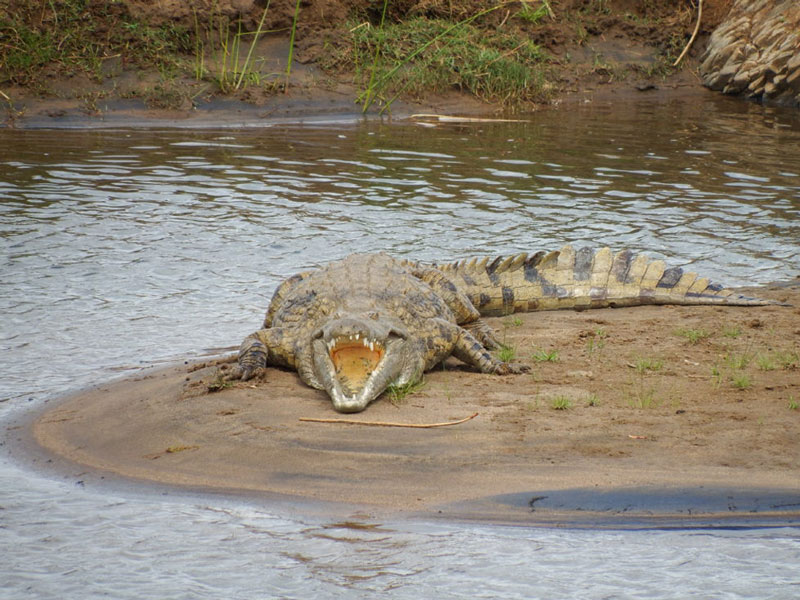At nDzuti Safari Camp, we are privileged to have access to a portion of the Olifants River as it meanders through the bushveld and into the Kruger Park. Hippos and crocodiles abound along this wide shallow river. I recall the reflection of hundreds of sets of eyes shining back at us one night as we shone a spotlight over the Olifants River at Bangu Gorge close to the Mozambiquan border. Crocs are masters of concealment; while searching for them and looking out over the river for a while; a partially submerged or log-lookalike croc might suddenly materialise, having been there in front of you all the time.
Crocs are often encountered sunning themselves of the riverbank. Being ectotherms crocodiles and all other reptiles regulate their body temperature using the environment. When crocs feel too hot they may lie out on the river bank with their mouths wide open. The breeze over the moist surface of the mouth interior causes cooling like the pant of dog does.
Crocodiles and the ambient temperature are closely connected in more ways than this. Crocodile hatchlings have their sex determined by the temperature of the nest in which the eggs grow.
Typically, all embryos start out as female but may become male when certain environmental conditions are reached. At a certain high temperature within the nest, androgenic hormones are produced by the embryos and male sex organs in the baby crocs begin to develop. It follows that the site of the nest, whether in the sun or a shady spot will determine the sex of the crocodile hatchlings.
Crocodiles are fascinating primitive creatures and a joy to watch living in the natural wild environment of the iconic Kruger Park.

